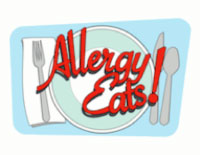
Vol. XIV, No. 1, January 2014
- Editor's corner
- Queue line design: theory versus perception
- Silverlake, the Family Place
- Four years after the economic recovery, America's birth rate remains depressed
- Foundations Entertainment University coming to Phoenix
- The Silver Screen is losing its shine
- Surfing in the desert
- Da Nang, Vietnam project gets a name
- It is very simply a people concept
- How to be friendly to food allergy sufferers
- The scoop on Chuck E. Cheese's going private
How to be friendly to food allergy sufferers

The Food Allergy Research & Education non-profit estimates that food allergies afflict 5% of Americans and almost 8% of children; it's a life-threatening issue for many. Every 3 minutes, a food allergy reaction sends someone to the emergency department The U.S. Centers for Disease Control reported that food allergies result in more than 300,000 ambulatory-care visits a year among children under the age of 18. Eight foods account for 90 percent of all reactions: milk, eggs, peanuts, tree nuts, soy, wheat, fish and shellfish. Even trace amounts of a foo dallergen can cause a reaction.
Here are some tips on how to make your food and beverage service allergy-friendly from Paul Antico, the founder and CEO of AllergyEats, a website created to provide diners a forum to share and review the allergy friendliness of restaurants across the country
- Commit. Owners and managers commit to being food allergy friendly, the staff will follow suit.
- Train staff about food allergies. Everyone working in food service should be thoroughly trained about food allergies and understand the company's procedures. This issue should be emphasized as being tremendously important and positioned as, literally, a matter of life and death.
- Create a food allergy protocol. Servers should immediately ask all guests if anyone in their party has a food allergy. If yes, they should know exactly what to do: flag the order, communicate to the cook and manager, avoid cross-contamination, etc.
- Communicate. Communication is essential to becoming more allergy-friendly. Understand what the trigger foods are for food-allergic guests and then to chefs to ensure the meal is prepared properly by every member of the team who will touch the order. When serving the meal, reiterate to the guests that it's the allergy-friendly meal they ordered.
- Develop detailed lists of ingredients. Even the most allergy-aware chefs admitted that it can be difficult to recall every ingredient in every dish - especially during busy Saturday nights. Create an internal database (such as a detailed spreadsheet) outlining the ingredients - separated out by components - in every dish. That way, the staff can see at-a-glance whether a meal contains certain ingredient.
- Avoid cross contamination. Use clean utensils, cutting boards, pots, pans and plates for food-allergic guests. For example, don't use a knife to chop almonds and then use it to chop vegetables for a guest with tree nut allergies. Designate a separate area of the grill and pizza oven, if possible, for allergy-friendly meals. Also be aware of other sources of possible cross contamination, such as high chairs, sponges, fryers and dish buckets.
- Designate certain equipment as allergy-friendly. While you'll be using clean utensils, cutting boards and other equipment for each food-allergic guest, some equipment - such as fryers - is more difficult to sanitize during typical meal service. Therefore, designate specific allergy-friendly equipment for nut-free, seafood-free, gluten-free etc. meals.
- Recognize curveballs. Many foods have alternative names. For instance, casein and whey are dairy, and ingredients like rye and barley contain gluten. Trigger foods can be "hidden" in unexpected places - barbeque sauce containing nuts, and soy sauces containing gluten, for example - so read every label, every time.
- Recognize the business benefits of becoming allergy-friendly. Centers can significantly boost profits and customer loyalty by becoming allergy-friendly. There's huge power in the "veto vote", where the food-allergic diner makes the decision about where the entire party will eat. Accommodating restaurants will gain the business from the food-allergic diner and from the rest of that person's party. Remember, the small percent of the population with food-allergies actually impact the dining decisions of a much larger percent of the population, as they will be coming with friends or family. If accommodated correctly, the food-allergic diner is more likely to return (with more guests) than a non-food-allergic diner.
- Be honest. If you can't confidently accommodate guests' food allergies, be upfront about it so they can choose to dine elsewhere. They'll appreciate the honesty and save you from a bad online review.
Vol. XIV, No. 1, January 2014
- Editor's corner
- Queue line design: theory versus perception
- Silverlake, the Family Place
- Four years after the economic recovery, America's birth rate remains depressed
- Foundations Entertainment University coming to Phoenix
- The Silver Screen is losing its shine
- Surfing in the desert
- Da Nang, Vietnam project gets a name
- It is very simply a people concept
- How to be friendly to food allergy sufferers
- The scoop on Chuck E. Cheese's going private


